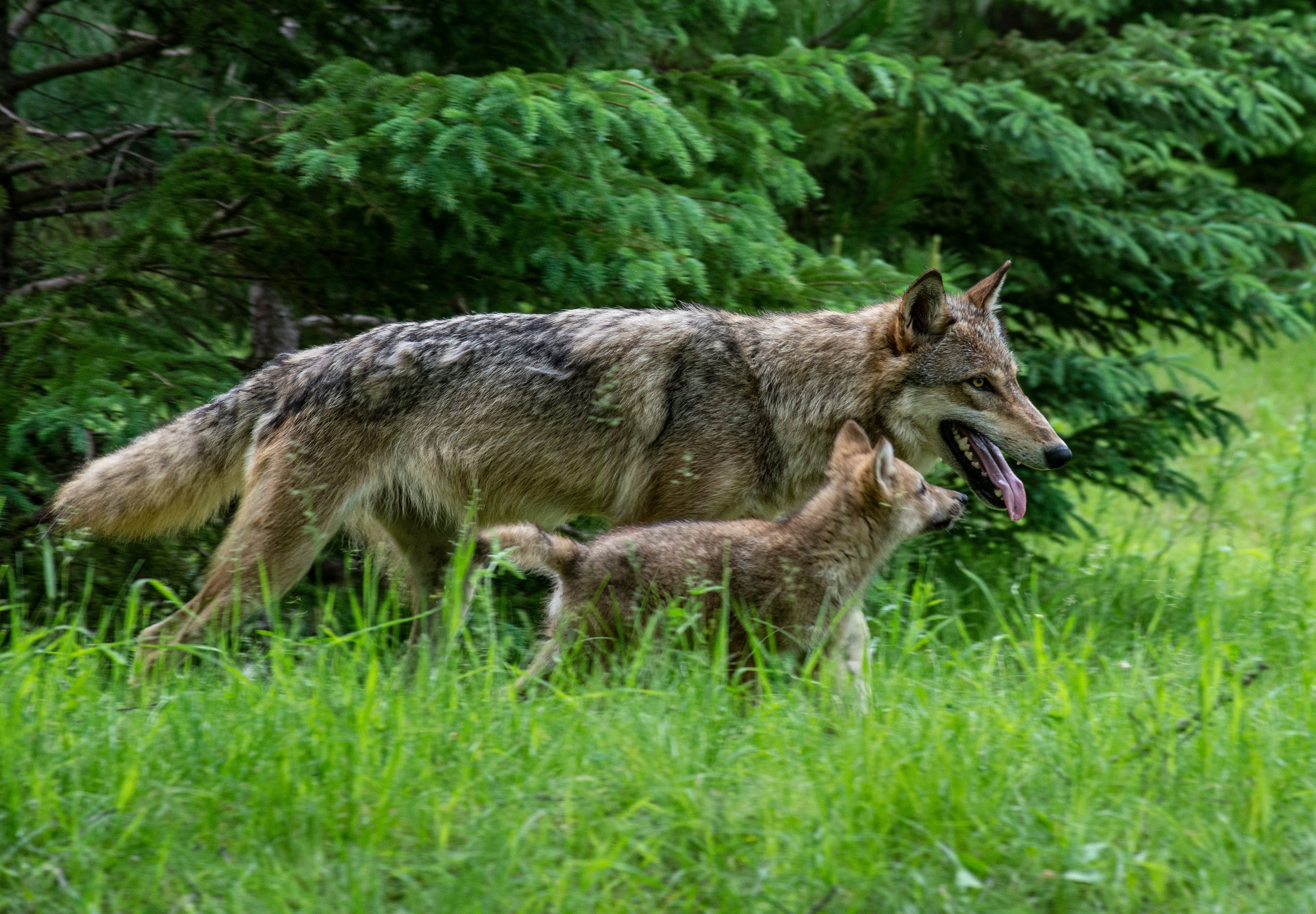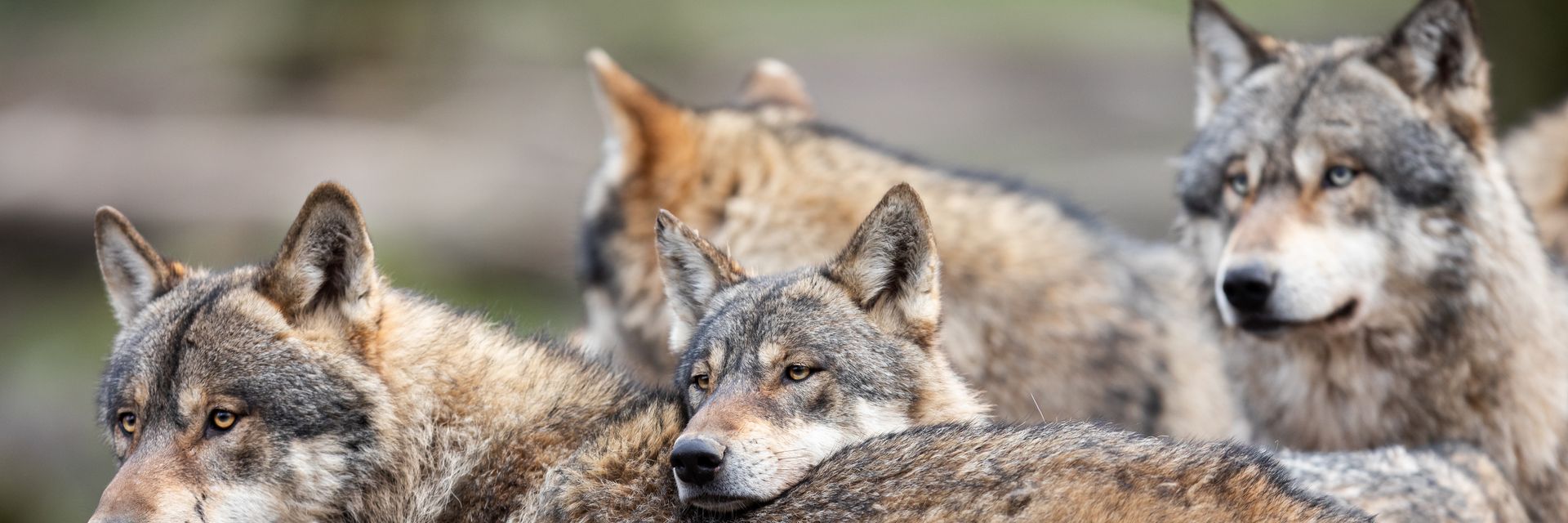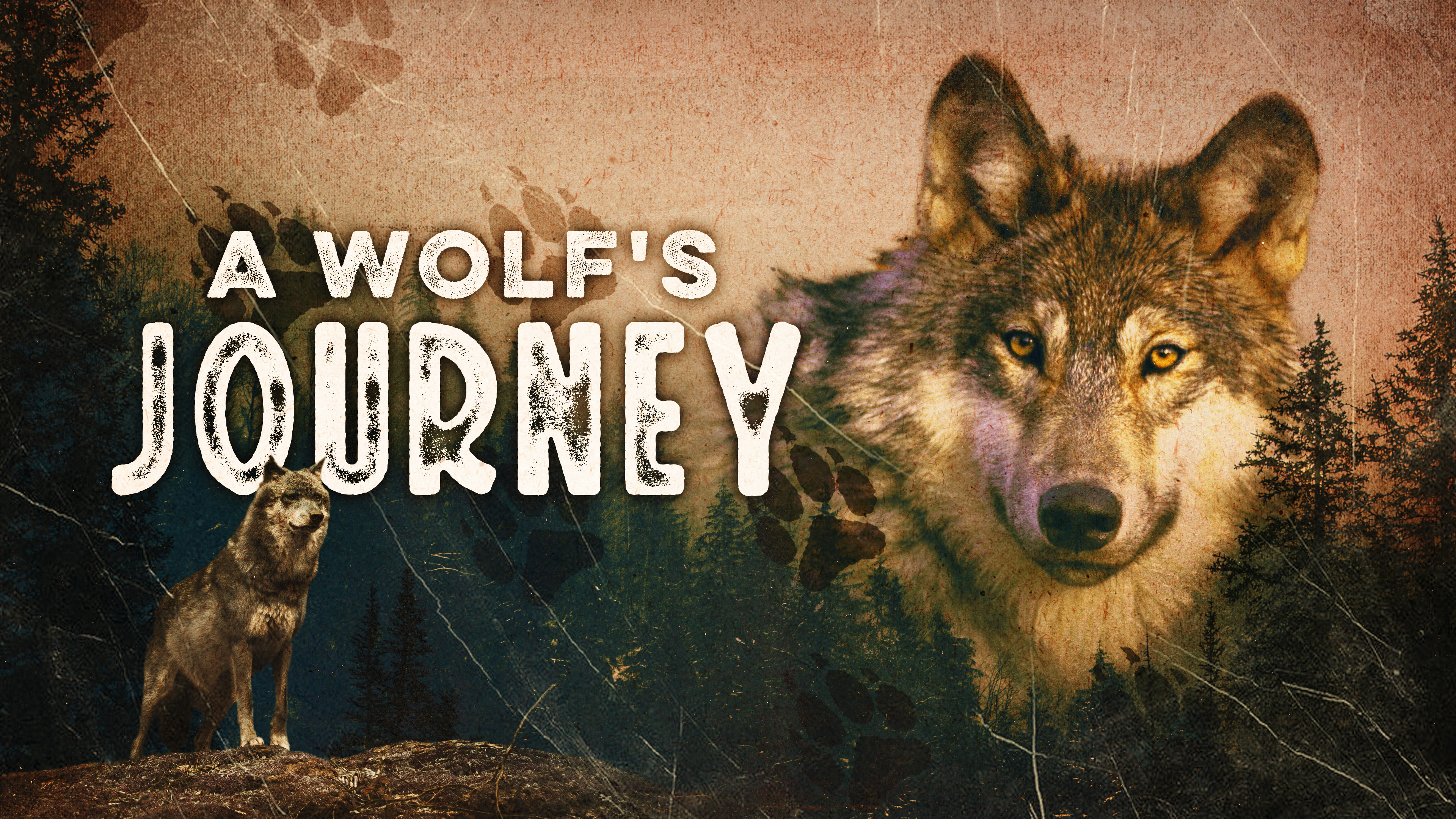It’s been widely believed that wild wolf packs are ruled by ‘alpha wolves.’ Really, packs are more like families.
◊
For generations, it’s been standard for the head of a wild wolf pack to be called its “alpha male.” In science and in popular language, the term gained hold in the imagination to mean much more than its original definition. “Alpha male” became a figure of speech to describe someone who towered over their peers, stirred fear in their competitors, and succeeded in life through ferocity.
Too bad it’s been wrong all along.
As a term, it first appeared in a 1947 study – of unrelated wolves in captivity. Then, in 1970, the term was used in an influential textbook, The Wolf, as the latest word in natural sciences on pack behavior. However, one rather large oversight led to the misperception that all wolves were in a constant struggle to secure dominance and mating rights.
For a thoughtful story of an outcast wolf in search of a new pack, check out A Wolf’s Journey on MagellanTV.
Wolf Behavior Is Different in the Wild
When Rudolph Schenkel published his 1947 paper Expressions Studies on Wolves, he didn’t differentiate between wolf behavior in captivity and in the wild. In fact, the study of wolves in the wild was rare until tracking and observation technology improved in the 1960s and ’70s.
In the 1970s, field researchers quickly realized that the myth of wild wolf pack alpha males was a bust. It’s not how wolves behave in nature. Rather, wolf packs act more like human families. Most packs have a mated couple at the head, and the remainder of the pack consists of their own pups, in various stages of development. There are no brutal demonstrations of force – sinew and blood sacrificed to claim the alpha role. It’s really just Mom, Dad, and the kids, and it’s been that way ever since wolves and dogs began their great evolutionary shift about 16,000 years ago.

(Credit: bettys4240, via Adobe Stock)
In wild wolf packs, Mom and Dad hunt for the benefit of the family. If food is scarce, the family ensures that the youngest are fed, then the parents, then the older pups of up to two or three years, who are learning how to fend for themselves and establish their own family unit.
Ensuring the Future Wellness of the Pack
It’s important to protect the natural spaces where wild wolf packs range so that their populations may thrive. Organizations that are devoted to wolves’ well-being are great sources of information on what individuals can do to get involved in restoring and maintaining wolf habitat. Some of these nonprofit organizations include the International Wolf Center and Defenders of Wildlife, where you can learn about the important work being done in the wild to protect the mighty wolf and its way of life.
Ω
Title Image Source: Adobe Stock (licensed)


